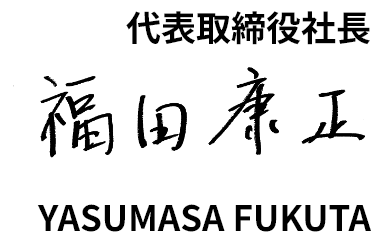Industries throughout the world are proceeding rapidly with measures to reduce CO2 emissions and achieve carbon neutrality, with the aim of realizing a post-carbon society. Europe and North America in particular have taken the lead in introducing various types of environmental legislation and environmental certification systems, seeking to transition as soon as possible away from an industrial structure that emphasized mass production and mass consumption, and which produced huge amounts of waste. To build a sustainable society, the attitudes and approaches to doing business that were the norm in the past need to undergo a fundamental transformation.
As a circular economy provider aiming to realizing the textile-to-textile cycle, TFE will be focusing on three key initiatives:
1. Manufacturing that features resource recovery as an integral element
2. Developing and providing environmentally-friendly proprietary materials
3. Strengthening the provision of environmental compliance consulting services
1Manufacturing that features resource recovery as an integral element
Manufacturing that incorporates resource recovery as an integral part of the process has a vital role to play in realizing the circular economy in the fiber and fashion sector. TFE is collaborating with Toyota Tsusho Corporation to implement PATCHWORKSTM, a project to promote the development of the circular economy in the fiber and fashion sector. A key feature of our company is that, while maintaining our trading company function, we combine this with the function of manufacturing. Working together with other Group companies and with our partner firms, we link together a series of stages in the supply chain – from product planning through raw materials procurement, spinning, dyeing, sewing, production and sale through to collection, sorting, breaking down, recycling, and the sale of recycled fiber – to provide customers with new value.
2Developing and providing environmentally-friendly proprietary materials
We are committed to developing and providing materials of the kind that only TFE can offer, including:
Recycled polyester material made using material recovered from used apparel
Recycled polyester material with a modified cross-section fiber structure, which uses recycled PET bottles as the raw material
Recycled polyester material which uses marine plastic waste (PET bottles) as the raw material
Nylon material made from discarded fishing nets
Recycled nylon material made from recycled automotive airbag offcuts
Material made by processing food waste and breaking it down into microscopic particles, to create a raw material for manufacturing artificial leather
Material made from coniferous tree thinnings that is used as a raw material for manufacturing traditional Japanese-style paper We identify the issues and concerns affecting our customers, and then work closely with our production facilities (both in and outside Japan) and with partner companies in the supply chain to speedily develop and supply new materials.
3Strengthening the provision of environmental compliance consulting services
To address the issue of wasteful excess production (including inventory loss and waste loss), which is a major problem for the fiber and fashion sector, by leveraging our knowhow in relation to the Toyota Production System (TPS) and by implementing Product Lifecycle Management (PLM) and measures to enhance productivity at our own plants (in Vietnam and China), we are strengthening the provision of support for achieving timely production in the right quantities. Through the adoption of PLM, in the short term we are aiming to promote greater operational efficiency, and over the medium to long term we are aiming to reduce lead times through data integration based on close coordination with suppliers and through data linkage with customers. Integrating data from purchasing through to the retail stores that sell our products enables us to realize a framework for eliminating wasteful production, by ensuring that data is transferred promptly to where it is needed. In addition, we are getting more opportunities to discuss environmental evaluation indicator visualization and traceability with customers that are starting to make a serious effort to emphasize environmental compliance. We have a track record of providing support to many customers who need to implement leading-edge environmental compliance and obtain environmental certifications in global markets. By effectively utilizing the knowhow that we have accumulated through CO2 reduction and circular economy initiatives, we are able to give back to our customers who are implementing environmental compliance.
Balancing concern for the environment with the strengthening of business operations is no easy task. While making effective use of the assets of the Toyota Group and the Toyota Tsusho Group, we will work to hone our own strengths and provide new value for customers both within and outside Japan, so that we can “do today what we could not do yesterday,” and “do what we can do today even better tomorrow.”
Being seen as important to the world and as playing a useful role, and being appreciated – In order that we can continue being an enterprise that embodies a cycle of gratitude and appreciation, we will continue to take on new challenges while paying due attention to the needs of the environment, society, and the economy.







